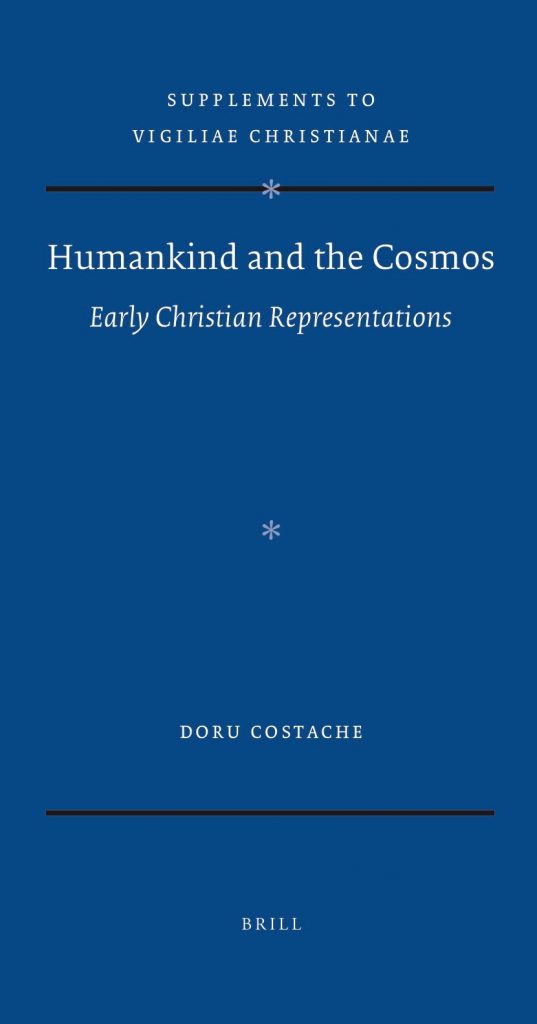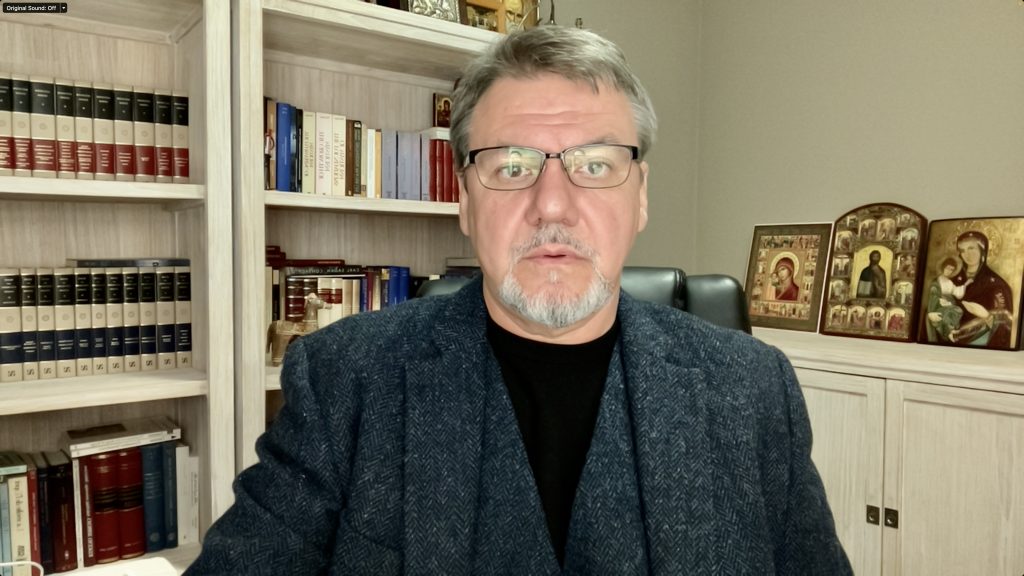In a previous essay I have mentioned my recent book, Humankind and the Cosmos: Early Christian Representations, published by Brill in July 2021. In researching the topic and in writing the book, I have been amazed by the variety of early Christian attitudes and approaches to the nature and the universe, especially by the anchoring of those attitudes in the multidisciplinary soil of philosophy, science, scriptural interpretation, spirituality, and theology. The fact that the scientific culture of that age—from the second to the early fifth century—has become obsolete is of no consequence. What matters is the interest of the early Christians in comprehending reality, together with the fact of doing so at the nexus of theology and science, faith and reason, idea and life. While in my previous essay I attempted to sketch their worldview, here I address three noteworthy lessons, relevant to contemporary experiences and aspirations. These lessons are: the cosmological framing of theological anthropology and its environmental implications; the interdisciplinary approach; and the sense of cosmic wonder (Humankind and the Cosmos, 370–373).
The cosmological and environmental framing of theological anthropology is inherent to the early Christian worldview. In what follows, I discuss this idea in terms that resonate with contemporary perceptions and concerns. Most sources I considered in my book subscribe to the view that—while being created in God’s image and thus theologically conditioned—humankind is connected with life, the earth, and the cosmos in its entirety. This connection bears profound implications. The world is divinely purposed as humankind’s cradle. All things are useful for us human beings. All of the universe’s components conspire in our favour. This realisation occasions wonderment to the cosmologists who consider “the goldilocks enigma” and reality’s “fine tuning” as much as it did to the early Christians who were contemplating the world’s order.
Viewed from the other end, all this amounts to saying that human nature—as a microcosm which summarises within itself all of reality—imposes anthropic restrictions upon the universe. The cosmos and the earthly ecosphere are as they are because we live here. The world is not a hostile place, despite its violent rhythms and the catastrophes it continuously experiences. As we are still here, the accidents that occur make our existence possible. Under God’s providence and within an ordered universe, all events tend to turn out well. In the grand schema of things, therefore, all beings are there for the good of other beings, and all secure human existence. To grasp this situation, people must discover the melodious rationality which traverses all the levels of reality, including areas of turbulence and disharmony. After all, people are the thinking centre where cosmic order and meaningfulness register and are processed.
It is against this backdrop that the early Christians contemplated humankind’s ecological and cosmic responsibility. Attuned to God’s wisdom—the creator of both humanity and the universe—and aware of their place in the order of things, people must live accordingly. That is, they must adopt an ascetic lifestyle and a moderate use of the world. It is only through humility and ascesis that they change from exploiters into gentle stewards. Ascesis, furthermore, transforms them from within. And as the positive energies of transformed persons reverberate far and wide, this lifestyle does not require a modus operandi similar to contemporary environmental action. Their immanence itself constitutes a kind of mystical agency, working towards cosmic wellbeing. But this mystical agency does not exclude a corresponding environmental activity; on the contrary, the two aspects complement each other. It is well known that Christian saints, as profoundly transformed people, are compassionate towards the natural world and all its inhabitants, human and otherwise, sentient, sapient, and far from either sapience or sentience. What matters is that—regardless of the numbers of those who attain to holiness—humankind’s solidarity with the natural world and contribution to cosmic wellbeing are part and parcel of the early Christian worldview. This stance remains an inspiration over the gulfs of history, especially in times that are as dire as our age is for the planetary ecosphere.
Another particularity of the early Christian worldview is the interdisciplinary approach. The sources I analyse in the book demonstrate a complex thinking irreducible to the narrow frame of reference of, say, doctrinal theology. True, all adhere to (roughly) the same doctrine of creation. But their view of the ordered universe as a theologically meaningful and welcoming place draws on multiple disciplinary perspectives. As such, it amounts to a continuously redrafted worldview.
 The works I analyse describe reality as the scientific culture of late antiquity did, and interpret it theologically, from the vantage point of a scripturally founded faith. They introduce a universe of fundamental elements and natural energies, of movement, change, and complex order, also one that—being continuously permeated by divine energies—evolves within the parameters of God’s wisdom. But there is more to the interdisciplinary approach of these sources. For example, they consider reality through the lens of Christian experience. Accordingly, the universe is an alternate liturgical assembly, echoing the rhythms of a prayerful congregation. Cosmic harmony doubles believers’ doxologies. In turn, the singing choirs of the church correspond to the voices of the elements. The mutual love of believers mirrors the cosmic solidarity of all created beings. From a pedagogical angle, the universe represents a genuine school where people learn about the creator, themselves, and the meaning of all that is. In the same vein, the world and its nonhuman inhabitants inspire ethical behaviour. Behind this pedagogical worldview operates a hermeneutical approach. Through this interpretative lens, the scientifically described, measured, and analysed cosmos becomes an object of spiritual interpretation. To grasp its message, together with training and skills, the able interpreter undertakes personal purification and seeks fellowship with God who speaks through the universe’s harmony.
The works I analyse describe reality as the scientific culture of late antiquity did, and interpret it theologically, from the vantage point of a scripturally founded faith. They introduce a universe of fundamental elements and natural energies, of movement, change, and complex order, also one that—being continuously permeated by divine energies—evolves within the parameters of God’s wisdom. But there is more to the interdisciplinary approach of these sources. For example, they consider reality through the lens of Christian experience. Accordingly, the universe is an alternate liturgical assembly, echoing the rhythms of a prayerful congregation. Cosmic harmony doubles believers’ doxologies. In turn, the singing choirs of the church correspond to the voices of the elements. The mutual love of believers mirrors the cosmic solidarity of all created beings. From a pedagogical angle, the universe represents a genuine school where people learn about the creator, themselves, and the meaning of all that is. In the same vein, the world and its nonhuman inhabitants inspire ethical behaviour. Behind this pedagogical worldview operates a hermeneutical approach. Through this interpretative lens, the scientifically described, measured, and analysed cosmos becomes an object of spiritual interpretation. To grasp its message, together with training and skills, the able interpreter undertakes personal purification and seeks fellowship with God who speaks through the universe’s harmony.
As it straddles a range of perspectives, from the natural sciences to scriptural wisdom to contemplative insights, the early Christian worldview suggests a superior solution to the widespread opinion in our age, that scientific and theological perspectives are incompatible. It also reveals an important task of contemporary Christians, namely, to replicate the achievements of past generations by redrafting the doctrine of creation in the framework of today’s scientific culture.
The last aspect I wish to highlight is the early Christian sense of cosmic wonder. The sources I discuss throughout the book display deep reverence for God’s wisdom embodied in the created universe. While the universe itself is not the focus of their reverence, these sources nevertheless depict it as theologically meaningful and worthy of respect and awe. Quantitative assessments, economical calculation, and anthropocentric considerations have no say here. Nor do simplistic theological definitions of the cosmic mystery that reduce it to having been created out of nothing. I keep repeating it: that the insights of these sources into natural phenomena have become outmoded is irrelevant. Their contemplative and qualitative approach does not depend upon the ancient sciences, or any other scientific culture, for that matter. This is so because these sources do not only describe reality. They marvel at the harmony and beauty of things; the fitness and usefulness of the natural processes; the meaningfulness and the purposefulness of the universe.
The world they depict is harmonious and musical; a world full of signs and messages. Their world is a welcoming place where people find shelter and enjoyment, wisdom and enrichment. The aptitude of the early Christians for wonderment led them to an overwhelming experience of cosmic fellowship, of meaning and purposefulness. Their experience is the very opposite of the sense of despair, isolation, and meaninglessness felt by contemporary people, especially in urban settings, who cannot free their hectic schedules in order to see the eloquent beauty of cosmic order. A return to natural contemplation and the early Christian sense of wonder might improve their situation—especially at the present time, when the pressures of the pandemic add further angst to the sense of pointlessness that so many people experience.
There is much generosity and inclusiveness in this underestimated perception of reality. It represents a wonderful convergence of various viewpoints, immune to the narrowness and the hysteria of today’s culture wars. It is my hope that this different picture of the early Christian worldview will inspire others—in their research and lifestyle—as much as it does me.
Acknowledgment Originally published on the blog of the International Society for Science & Religion, June 2022
16 June 2022 © AIOCS (for this version)
AIOCS LTD is a not-for-profit charitable organisation that promotes the study of Orthodox Christianity, Eastern and Oriental, in Australia
For donations, please go to https://www.paypal.com/paypalme/aiocsnet or contact us at info@aiocs.net



